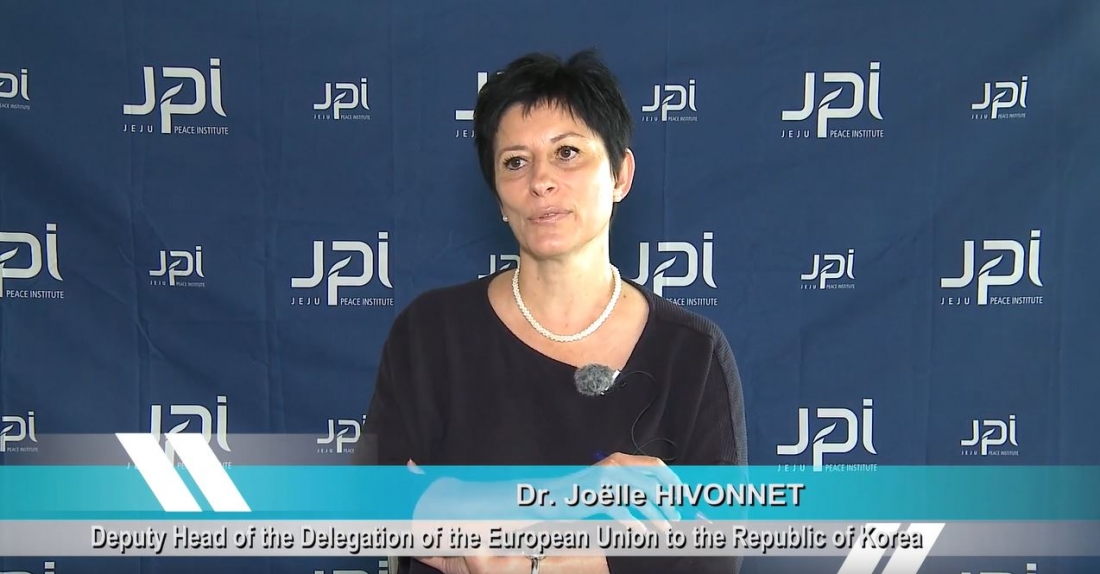
[Integration of Political and Economic Migrants with Respect to Refugees in Europe and Korea]
Q1. What do you think of the integration of political and economic migrants, with respect to refugees in Europe and Korea?
First, I’d go back to what is termed the refugee crisis in Europe. I’d also like to look at the response by the European. Second, I’d look at the response of the international community. There were recently two high-level events in New York: a UN meeting on September 19 followed by a leaders’ summit convened by President Obama. The third aspect is the issue of refugees in Korea, looking at the treatment of North Korean defectors, and also drawing comparisons to refugees coming from other parts of the world.
Q2. For both asylum-seekers and immigrants, European countries have long been considered ideal destinations due to their welfare benefits and social tolerance. However, some tension has built up between native Europeans and immigrants because of the heavy burden of welfare expense and new social challenges. What are the European’s fundamental principles and main priorities to address those problems?
The EU is indeed an attractive destination for migrants, be them political or economic migrants. The attraction of the EU is dual. First, there are social and economic opportunities that the EU can offer to those migrants. We also believe it’s because the EU is founded on values that are attractive to migrants who don’t necessarily want to leave regimes that are authoritarian just to live under equally authoritarian regimes, and also not be granted the same rights as citizens. However, as we’ve seen recently, during the peak of migration—particularly in the year 2015—there was a backlash from populations in the EU and also by some of the governments.
Q3. In 2010, German Chancellor Angela Merkel said that multicultural society in Germany has failed. Since then, the failure of multiculturalism has been often cited in other countries as well. What does “multiculturalism” mean in the context of Europe? Is it still a valid concept or policy goal for European countries? Why or why not?
Multiculturalism is a very difficult concept, and it probably means different things to different people. Having said that, I think the EU is essentially a multicultural project, because we have 28 member states with many different languages, some practicing different religions or no religion. It is also based on common values, and this is the cement of the EU. These values include, for example, respect for human rights, the rule of law, and democracy. This is something that will remain. When we’re talking about the “crisis of multiculturalism,” I think sometimes we are seeing social and political crises rather than the failure of multiculturalism as a government policy to integrate migrants. I don’t think multiculturalism has failed as such because it is part of the genetic code of the EU, but clearly more has to be done to promote the integration of newly arrived migrants.
Q4. What is the outlook for European immigrant crisis in 2017? What do you think of responses to this at the institutional level in Europe?
It’s always difficult to predict the future, but we can safely say that the peak of immigration that the EU faced in 2015 is probably behind us. But having said that, immigration to the EU will not stop largely because the root causes of migration from countries as distant as Sub-Saharan Africa will remain and also because the EU, because of its demographic problems, will continue to need migrant workers.
In 2017, I would say that migration will continue but the EU has given itself the means to address such issues by promoting more regular migration and by being able to deal in a more orderly fashion with the issue of refugees and asylum seekers. Some measures have already been adopted, but taking this issue to a different level and asking the international community to also react and act upon these big migration flaws, which are affecting not just Europe but also the rest of the world, and in particular Africa and Asia. I hope what is being decided in New York will also be helpful in helping the EU to face those challenges.
* Dr. Joëlle HIVONNET is the deputy head of the delegation to the European to the Republic of Korea.
Dr. Joëlle HIVONNET discussed immigration issues faced by the EU and areas for policy intervention. The migration crisis faced by Europe has been the attention not only of Europe, but also the international community. For example, Dr. HIVONNET pointed out that the UN Summit for Refugees and Migrations in September 2016 was a high-level event to address these issues.Dr. HIVONNET highlighted two reasons the EU is an attractive destination for migrants, be them political or economic migrants. There are social and economic opportunities in the EU, and it also offers refuge and rights to those escaping authoritarian regimes. However, as we’ve seen recently, during the peak of migration—particularly in the year 2015—there was a backlash from populations in the EU and also by some of the governments. Though some have alleged this is a failure of the multiculturalism that is so central to EU values, but Dr. HIVONNET said that the crises are social and political backlash rather than the failure of the multiculturalism policy. She predicts that in 2017 migration trends will continue but the EU has given itself the means to address such issues by promoting more regular migration.
* Interviewed on September 22, 2016 (The 11th JPI-FNF Joint Workshop)
Posted on November 25, 2016
